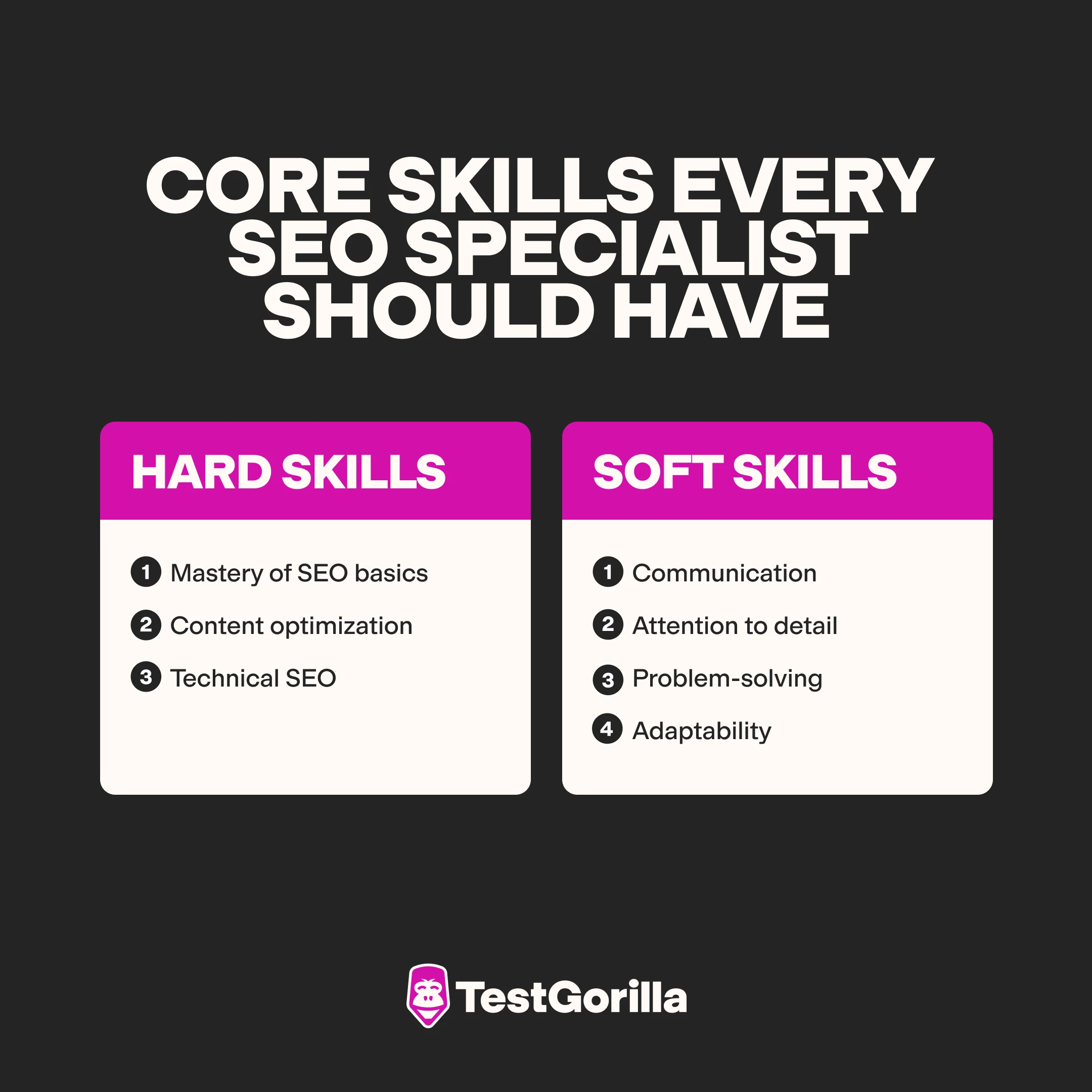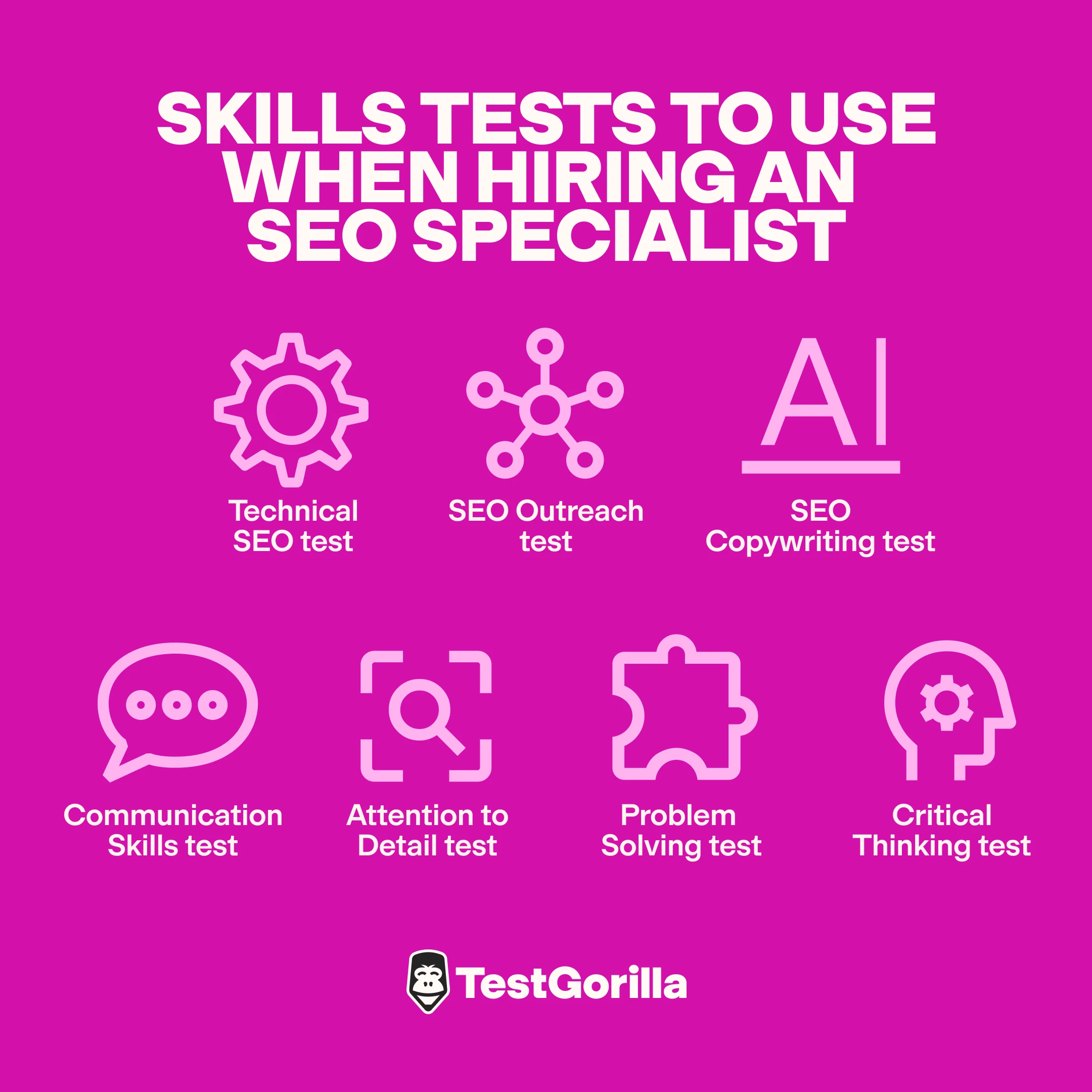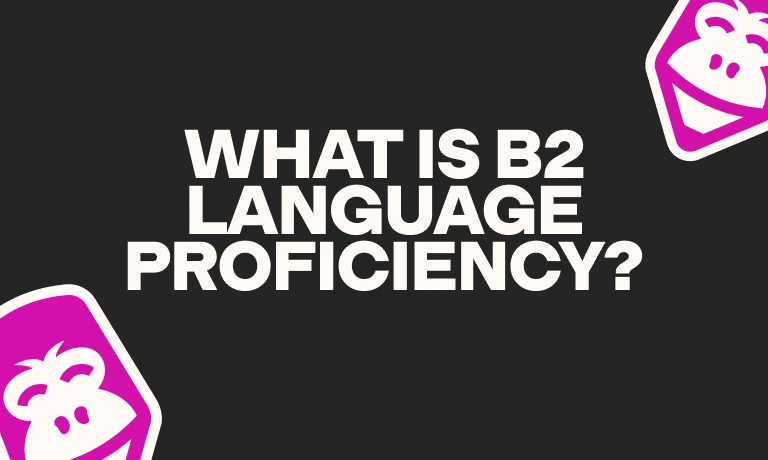It isn’t easy to hire a top SEO specialist. You need someone who understands SEO deeply, keeps up with the latest trends, and can grow your online presence.
They also need to understand your business and adapt your content to evolving search algorithms. The right hire can give your company a competitive edge and significantly boost your online visibility and growth. But the wrong one can really muck up your search rankings and digital strategy.
Luckily, we’ve got you covered. This article helps you understand the must-have skills for an SEO specialist, shows you why they're crucial, and gives you tips on how to spot the right qualities in your candidates.
What is an SEO specialist?
An SEO specialist is the search engine savant who makes sure your website ranks highly on platforms like Google, Bing, and Yahoo. They handle everything from keyword research to content optimization to keep your online presence strong and relevant.
Every day, they look for ways to improve your site's visibility and drive organic traffic. This could mean updating old content, conducting A/B tests, or tweaking your website’s structure for better crawlability.
They monitor keyword rankings, backlinks, and analytics, keeping all content optimized and performing well. When different teams – like content creators and web developers – need to coordinate, the SEO specialist steers these conversations smoothly.
They also sync up SEO strategies with your company's broader goals, coordinating content creation, social media, and paid ads to improve search rankings and overall online visibility.
Core skills every SEO specialist must have
Here are seven key skills every top-notch SEO specialist should have in their bag.
Hard skills and knowledge
Here are the technical skills your SEO specialist needs to succeed.
Mastery of SEO basics: They need to understand every aspect of SEO – from on-page techniques like keyword optimization and meta tags to off-page tactics like backlink building. This way, they can keep your site ranking high and quickly solve any SEO issues that pop up.
Content optimization: Whether it’s tweaking blog posts to rank for specific keywords or keeping product descriptions SEO-friendly, they’re on it. Their keen eye for detail makes sure your content is both engaging for readers and optimized for search engines, helping your site climb the rankings.
Technical SEO: They’ve got to be comfortable with the technical side of things – like improving site speed, ensuring mobile-friendliness, and fixing crawl errors. This way, search engines can easily access and index your site. While the level of technical expertise needed may vary between roles, candidates should know enough to communicate effectively with more technical team members.
Soft skills
A great SEO specialist also possesses these soft skills.
Communication: They act as the go-between for the tech team and content creators. They need to explain complex SEO concepts in simple terms, keeping everyone on the same page and working towards the same goals.
Attention to detail: They carefully check every part of your website to make sure nothing gets missed. Whether it's catching tiny errors in the code or fine-tuning content for SEO, their thoroughness keeps everything organized and in line with the latest SEO standards.
Problem-solving: When rankings drop or traffic takes a hit, your SEO specialist is the one to call. They dive into analytics, find what’s going wrong, and figure out the best way to fix it quickly and effectively.
Adaptability: SEO is constantly evolving with search engine algorithm updates. They stay ahead of the curve by keeping up with industry trends and adjusting strategies as needed to maintain and lift your site's ranking.
The best insights on HR and recruitment, delivered to your inbox.
Biweekly updates. No spam. Unsubscribe any time.
How to assess SEO specialist candidates
Resumes don’t tell you everything about an SEO specialist’s skills. A candidate might look impressive on paper, but if you use resumes to screen candidates, you could miss out on talented people who don’t have cool-sounding job titles but know their SEO inside out.
Plus, relying only on resumes can bring in bias, making you overlook great candidates with the right skills. For instance, someone who’s self-taught or has practical experience from freelancing might not have a traditional career path but could be a real asset to your team.
Platforms like TestGorilla help you put resumes and cover letters in the rear view.
With our library of 400+ tests, you can really dig into each SEO candidate's technical abilities, soft skills, and personality traits. This gives you a complete picture of each person, helping you make smart, data-driven hiring decisions.
Plus, you can mix and match up to five tests and create your own custom talent assessment – so you can figure out who’s the perfect fit for your SEO specialist role. You can also add your own questions to tailor the assessment to exactly what you need.
Here’s how to find the best SEO specialists for your team.
Start with hard skills
These tests can help you figure out if candidates know their stuff:
finds candidates who have a knack for keyword research, on-page optimization, and Google tools and algorithms. It measures their ability to boost search rankings and drive organic traffic.
The SEO Outreach test evaluates candidates' skills in building links and relationships – and understanding search engine algorithms. It combines technical know-how with practical tasks like email outreach and campaign brainstorming, giving you a well-rounded view of their abilities.
Our SEO Copywriting test checks a candidate's knowledge of SEO best practices and how their writing ability helps web pages rank higher in search engine results pages (SERPs).
Assess soft skills next
To learn more about your candidates’ soft skills, consider using these tests:
Our Communication Skills test measures candidates’ verbal and written communication skills, as well as their ability to clarify concepts and summarize messages. This is critical for working smoothly with content creators and developers – who may not speak the language of SEO.
checks how well candidates can manage and process a lot of moving pieces of information. This helps find SEO specialists who can catch errors and fine-tune content for the best SEO results.
checks how effectively candidates can troubleshoot issues and come up with effective solutions. This helps spot candidates who can jump into action when rankings drop or traffic dips.
assesses their ability to work with data and make informed decisions based on analytical reasoning. This is crucial for coming up with reasonable, data-driven SEO strategies.
You can also check out personality tests like Enneagram, 16 Personalities, or DISC to learn more about your SEO specialist candidates’ working styles and preferences, approaches to relationship building, and more. This helps you find someone who fits well with your team and can handle the high-speed world of SEO.
Don’t forget about culture add
A strong company culture is all about being open to change and growth. That's why it's crucial to assess how well candidates can fit into and improve your existing culture. For SEO specialists, who need to be creative and solve problems in unique ways, having culture-add potential is a big plus.
Try our Culture Add test to see how your candidate's values align with your organization's and find behaviors that could make them a great addition to your team.
Finish with interviews
Wrap it up with interviews tailored for SEO specialist candidates. These conversations dive into their real-world experiences, showing how they tackle the unique challenges of SEO.
Ask questions like:
"Can you share an example of improving a website's search rankings? What specific strategies did you use for on-page and off-page SEO, and what were the results?" This sheds light on their SEO skills and ability to drive results.
"Tell me about a time you identified an opportunity to optimize a website for better performance. How did you handle technical SEO issues like site speed, mobile optimization, or crawl errors, and what impact did it have?" This assesses their strategic thinking and problem-solving abilities.
“Tell me what you know about [name recent update – for example, a Google algorithm update]. How did you change your SEO processes in light of this update?” This assesses their adaptability.
Pro tip: If a candidate lacks direct experience, pose hypothetical scenarios like, "Imagine you're tasked with improving a site's search rankings in three months. What specific steps would you take to achieve this?" This helps see their potential and approach to problem-solving.
For more ideas, try these 100+ SEO interview questions to hire an SEO professional.
2 common mistakes to avoid when assessing SEO specialist candidates
Watch out for these common pitfalls when checking out your SEO specialist candidates.
1. Overlooking UX skills
Ruth Everett, a technical SEO expert with years of experience, once said, “It’s important to look beyond rankings and rather ensure a website is usable for everyone.”
SEO isn't just about making search engines happy – it's also about giving users a great experience. Your candidate should know how things like site speed, mobile-friendliness, and easy navigation affect both SEO and user satisfaction. Make sure to ask them about their experience with optimizing these user experience (UX) elements to boost user engagement and rankings.
2. Not checking for local SEO knowledge
If your business targets customers in a specific area, it's crucial that your SEO specialist understands local SEO strategies. This involves optimizing your online presence to get more business from relevant local searches.
Tactics include optimizing your company’s Google Business Profile, getting backlinks from local sources, and targeting local keywords. Ignoring this can result in missed opportunities for traffic and sales. Be sure to ask candidates about their understanding of these tactics and how they've boosted local traffic.
FAQs
Curious to learn more about SEO specialists? Here are some commonly asked questions and answers.
What are some red flags to watch out for when evaluating SEO specialists?
Watch out for candidates who lean on outdated tricks like keyword stuffing or can’t clearly explain their strategies. Also, steer clear of anyone who isn’t current on the latest SEO trends and algorithm changes. You need someone who knows the current SEO landscape and can adapt quickly.
What is the average salary of an SEO specialist
In the US, an SEO specialist earns an average salary of $64,832, according to Indeed’s 2024 data. On the low end, they earn just under $45,000 per year. High earners can pull in around $96,000 per year.
Put your SEO in safe hands with TestGorilla
Finding the right SEO specialist can make a huge difference in your company's online visibility and growth. They need to be on top of the latest trends, know your business, and optimize content to serve your audience. But hiring the wrong person can lower your search rankings and damage your brand.
TestGorilla's talent assessments can help you find SEO specialists who’ll keep your content strategy sharp and engaging. Our tests are built with expert input and scientific research to assess practical skills, personality traits, and cognitive abilities. This way, you can find someone who really fits your needs and can take your SEO to the next level. Give it a shot. Check out our library of 400+ tests, schedule a live demo, or start a free TestGorilla account today!
You've scrolled this far
Why not try TestGorilla for free, and see what happens when you put skills first.
















